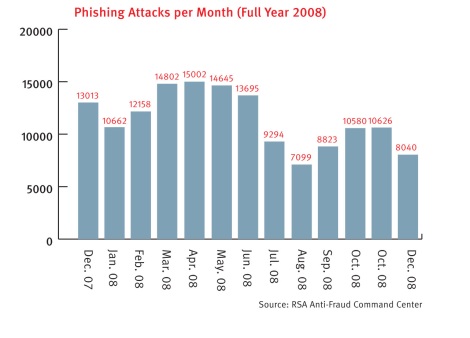Business to business transactions (B2B) and online transactions may be easier to carry out, but they are vulnerable to scams and fraud.
Fellow blogger, cybertreehugs was sent an email telling her that she had won EU250 550 euros. Suspicious, she went to look the company up and upon investigation she found that this was a scam.
This is a scam called ‘phishing’, which is the act of stealing a user’s identity, is done by phoning of emailing you or your company and asking for certain details such as your credit card number, so that they can access your personal information. This email or site poses as a official email from a bank or credit card company or another type of company.
There are other types of online scams such as auction fraud, investment schemes and stock scams. The United States still dominates sixty one percent of the phishing crimes but phishing has become an increasing crime in South Africa. Here are several tips to ensure that your online business is not taken for a ride by a con artist.
Looking to buy equipment or upgrade things around the office? No problem, visit an online auction, but beware of scams on online auctions. Firstly, make sure that what you purchase exists and thereafter ensure that the product you pruchased is what you will be getting.
Never give important or critical information to a person over the telephone or via email, banks and other companies dealing with assets have secure ways of finding and receive these important details.
Read emails or forum messages about fraud and phishing and other online crimes to be aware of scams and the dangers they have, do not delete the email.
Check if the company exists, try calling their telephone number, look for them on the internet, a person can track a person down on Facebook to see their personal information and work details.
There is also an online resource called Scam.com. Register with Scam.com and then can search to see if the company is a scam. This however, is an American company, so you can alternatively check to see if the company is registered company, look through CIPRO.
Lastly, trust your gut instinct, if something does not feel right about the conversation or the email, you do not have to reply.
No matter how large or small your digital business, mobile or online business is, it is not invincible or untouchable in terms of scams.
TIP: Verify, Verify, Verify, and do not be so naïve to freely give out important information to strangers.
